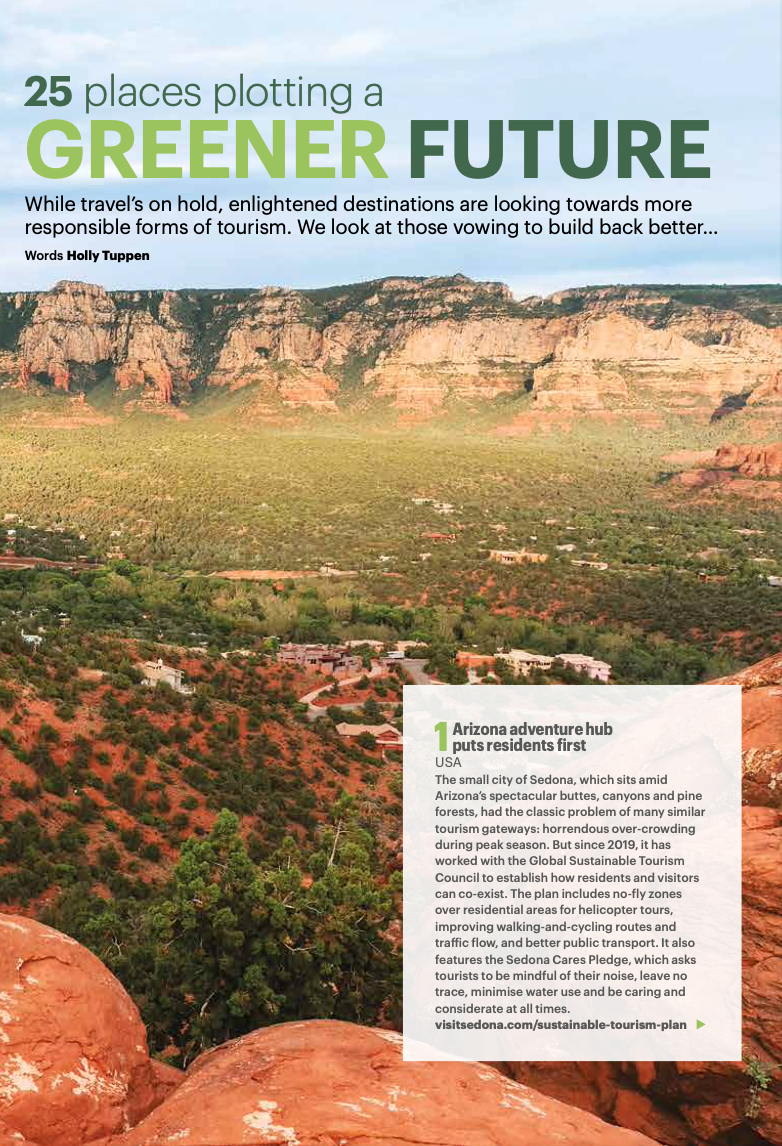Rewilding: The UK initiatives helping to save our countryside, Condé Nast Traveller
In the parkland surrounding Somerleyton Hall in Suffolk, Scots pines and modest oaks fringe a sea of golden grass, disturbed only by rusty-brown survivors of summer’s thistle and the dark shadows of Welsh black cattle. In autumn, the gentle landscape seems settled in the season’s orange glow – even the Italianate towers of the Jacobean country house echo the colour scheme. Walking around the estate’s 5,000 acres with its hereditary resident, Hugh Somerleyton, I’m reminded that UK conservation efforts often follow an over-familiar narrative of wealth, ego and exclusivity – landowners set on well-meaning yet unattainable missions – but I soon realise this one is different.
The most recent of the country’s regeneration projects, Wild East was set up in 2020 by Somerleyton, Ollie Birbeck and Argus Hardy. It aims for 20 per cent of East Anglia to be returned to nature. ‘Having earnest rich people talk about it is not motivating for most people, especially farmers,’ says Somerleyton as we scramble down a forgotten patch of woodland towards the silvery, marshy edge of the River Waveney.
Upstream, it carves a border between Suffolk and Norfolk; a few miles below, it trickles out to sea at Great Yarmouth. His two terriers, Archilles and Judas, lead the way, eager to reach a tangle of reeds and rushes criss-crossing towards a lonely mill. ‘If we want to bring nature back, we need to make the conversation relevant to a broader group of people,’ he adds.
Wild East gathers together a patchwork of initiatives across a 1,500-square-mile landscape that stretches from The Wash to the Thames Estuary. Anyone can pledge a portion of their land, so the commitments range from a plot of un-mown garden to 500 acres of the Massingham Estate. Although influenced by rewilding pioneers such as Charlie Burrell and Isabella Tree at Knepp Castle Estate in Sussex, and Paul Lister’s often controversial campaigns to bring back wolves at Alladale in Scotland, the mission here has a sense of pragmatism. But debate is still welcome, which is why a lynx – a potential reintroduction to East Anglia – sits defiantly on the Wild East logo.
As we cross rutted fields and water-logged tracks, a fallow deer darts into a thicket and a flock of buntings swirl above the mud like a swarm of bees. ‘We’re just going back to how my father’s farm manager did it 50 years ago – before big machinery and efficiency took over.’ Somerleyton jumps enthusiastically from one scheme to the next. Rotating crops, restoring heathland, introducing bison (something of a heavyweight rewilding pin-up, despite not being native to England). Commercially, it relies on optimism and the hope that in 20 years or so the demand for low-cost meat will dramatically reduce. It’s clearly a work in progress. In the woods by Fritton Lake, choking rhododendrons from the Victorian era have already been cleared to create a new ecosystem for waders at the water’s edge. Ten or so large black pigs break up the soil and bracken, their snouts playing an essential role in the regeneration process.
The estate can be visited for the day but it’s far better to stay the night at the 16th-century Fritton Arms – with roaring fires and a menu packed with local blackberries and venison sausages - or one of the woodland cabins and cottages. From here, you can dip into wild swimming, take boat safaris around the two-mile lake or drift around the pool, a log fire warming the towels. During a jog along the shore, I come face to face with muntjac, and am startled when several pikes send sprats shooting out of the water like silver bullets. Later, I join Fritton Lake’s forager, Matthew Stevenson, to dive into the woods to find chanterelles, bracket fungi, bonnets and stinkhorn. ‘You must never forage the lot; leave some for nature and keep the mycelium intact,’ he says. ‘Be mutualistic rather than parasitic.’ By the end of the walk I’m hugging a ginkgo tree and being told to feel the energy in its veins.
The whole place manages to appear cared for but not at all polished – Somerleyton views complaints about the ‘messy’ long grass as a success. ‘You never know what you’re going to get with him,’ Stevenson tells me.‘The other day he asked me to make sure lizards can still get in and out of the covered-up footgolf holes.’ It will take time for the estate to thrive under this passionate custodianship, and for wider ambitions to ripple out around East Anglia. What does seem sure is that, while many rewilding projects feel out of reach, everyone will be welcome to join the Wild East mission; an approach that’s long overdue. wildeast.co.uk
First published in print; also read online here.



